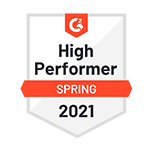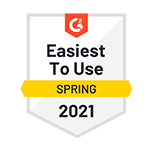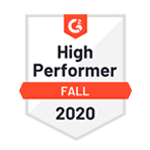In today’s highly competitive job market, recruiters are bombarded with hundreds or even thousands of resumes for every job opening they post. It’s a time-consuming process to sift through all of these resumes to find the right candidates. That’s why recruiters need resume parsing tools to automate the process and make it more efficient.
Resume parsing software is an innovative technology that has revolutionized the hiring process. It is designed to help recruiters and hiring managers quickly and efficiently screen and sort through thousands of resumes to identify the most qualified candidates for a job. In this article, we will provide an overview of resume parsing software, its features, benefits, and limitations.
What is Resume Parsing Software?
Resume parsing software, also known as CV parsing software, is an automated tool that extracts data from resumes and other job application documents, such as cover letters and job applications. This software is designed to identify and extract specific pieces of information, such as work experience, education, skills, and contact information, from the resume and store it in a structured format that can be easily searched and sorted.
How does Resume Parsing Software work?
Resume parsing software works by analyzing the text in a resume or job application and identifying specific keywords and phrases that relate to the candidate’s qualifications and experience. The software then extracts this information and converts it into a structured format, such as a database or spreadsheet, that can be easily searched and sorted by recruiters and hiring managers.
The software uses a combination of natural language processing (NLP) and machine learning algorithms to extract and categorize the information from the resume. Some parsing software can even detect the type of file the resume is in, whether it is a PDF, Word document, or plain text, and automatically convert it to a searchable format.
Features of Resume Parsing Software
Here are some of the key features of resume parsing software:
- Resume Import: The software allows the user to easily import resumes in various formats such as Word, PDF or even image files. It can automatically detect the information on the resume and extract the data, regardless of the file format.
- Information Extraction: The software uses advanced algorithms to extract important information from the resume such as work experience, education, contact information, and skills.
- Data Structuring: The extracted data is then structured into a standardized format, which can be easily integrated into the employer’s applicant tracking system (ATS).
- Keyword and Phrase Analysis: The software identifies and analyzes keywords and phrases in the resume to help employers quickly identify qualified candidates.
- Resume Parsing in Multiple Languages: Resume parsing software can also be designed to parse resumes in multiple languages, making it an ideal tool for international hiring.
- Customizable Parsing Rules: Employers can customize the parsing rules to ensure that specific information such as certifications, licenses, or other job-specific requirements are identified and extracted.
- Reporting and Analytics: Resume parsing software can provide reporting and analytics on key metrics such as time-to-hire, candidate source, and application volume.
- Integration with ATS: The software can seamlessly integrate with existing applicant tracking systems, allowing employers to easily manage and organize candidate data.
- AI and Machine Learning: Some resume parsing software also incorporates AI and machine learning to continually improve the accuracy of its data extraction and analysis.
Benefits of Resume Parsing Software
1. Time-Saving: Resume parsing software helps recruiters and hiring managers save time by automating the screening process and eliminating the need to manually review each resume.
2. Improved Candidate Matching: The software can identify relevant skills, experience, and qualifications mentioned in the resume, and help recruiters and hiring managers identify the most qualified candidates for the job.
3. Increased Efficiency: By automating the screening process, resume parsing software can help recruiters and hiring managers focus their time and attention on the most qualified candidates, increasing efficiency in the hiring process.
4. Reduced Bias: Resume parsing software can help reduce bias in the hiring process by removing personal information such as name, gender, and age from the screening process.
Limitations of Resume Parsing Software
1. Inaccurate Data Extraction: Resume parsing software may occasionally extract inaccurate or incomplete data from resumes, which can result in missed opportunities or inappropriate matches.
2. Limited Contextual Understanding: Resume parsing software has limited contextual understanding and may not always be able to distinguish between relevant and irrelevant information in the resume.
3. Reliance on Structured Data: Resume parsing software relies on structured data, which may not capture the full scope of a candidate’s experience or qualifications.
Comparison of top 10 resume parser software with recruit BPM resume parser
There are many resume parsing software options available, each with its own set of features and benefits. Below is a comparison of the top 10 resume parser software options with Recruit BPM’s resume parser.
1. Zoho Recruit
Zoho Recruit is a popular ATS and resume parser software that can extract information from resumes and store it in a database for easy retrieval. It offers features such as resume parsing, job board integration, and social recruiting.
2. JobAdder
JobAdder is an ATS and recruitment software that includes a resume parsing feature. It can extract data such as work experience, education, and skills from resumes and store it in a database for easy retrieval.
3. Workable
Workable is a recruitment software that includes a resume parsing feature. It can extract data such as work experience, education, and skills from resumes and store it in a database for easy retrieval. It also offers features such as job posting, candidate sourcing, and interview scheduling.
4. Recruit CRM
Recruit CRM is a recruitment software that includes a resume parsing feature. It can extract data such as work experience, education, and skills from resumes and store it in a database for easy retrieval. It also offers features such as job posting, candidate sourcing, and interview scheduling.
5. Lever
Lever is a recruitment software that includes a resume parsing feature. It can extract data such as work experience, education, and skills from resumes and store it in a database for easy retrieval. It also offers features such as job posting, candidate sourcing, and interview scheduling.
6. Recruiter box
Recruiterbox is a recruitment software that includes a resume parsing feature. It can extract data such as work experience, education, and skills from resumes and store it in a database for easy retrieval. It also offers features such as job posting, candidate sourcing, and interview scheduling.
7. Jobvite
Jobvite is a recruitment software that includes a resume parsing feature. It can extract data such as work experience, education, and skills from resumes and store it in a database for easy retrieval. It also offers features such as job posting, candidate sourcing, and interview scheduling.
8. Greenhouse
Greenhouse is a recruitment software that includes a resume parsing feature. It can extract data such as work experience, education, and skills from resumes and store it in a database for easy retrieval. It also offers features such as job posting, candidate sourcing, and interview scheduling, as well as analytics and reporting tools to help recruiters track their hiring metrics.
9. Breezy HR
Breezy HR is a recruitment software that includes a resume parsing feature. It can extract data such as work experience, education, and skills from resumes and store it in a database for easy retrieval. It also offers features such as job posting, candidate sourcing, interview scheduling, and automated candidate communication.
10. Bullhorn
Bullhorn is a popular ATS and recruitment software that includes a resume parsing feature. It can extract data such as work experience, education, and skills from resumes and store it in a database for easy retrieval. It also offers features such as candidate management, job posting, and email integration.
11. Smart Recruiters
Smart Recruiters is a recruitment software that includes a resume parsing feature. It can extract data such as work experience, education, and skills from resumes and store it in a database for easy retrieval. It also offers features such as job posting, candidate sourcing, and interview scheduling, as well as advanced reporting and analytics tools.
12. Recruit BPM
Recruit BPM is a recruitment software that includes a resume parsing feature, along with other advanced features such as candidate search and matching, customizable workflows, and advanced reporting and analytics tools. Its resume parser can extract data such as work experience, education, and skills from resumes and store it in a database for easy retrieval.
When choosing a resume parsing software, it’s important to consider factors such as cost, ease of use, and the specific features and functionality that your organization requires. It’s also important to consider whether the software integrates with your existing systems and workflows, such as your ATS or CRM.
When compared to the other software listed, RecruitBPM stands out for its advanced candidate search and matching capabilities, customizable workflows, and more comprehensive reporting and analytics tools. However, the specific needs of your organization will ultimately determine which software is the best fit for your recruitment needs.
Conclusion
In conclusion, resume parsing software can be a valuable tool for recruiters in today’s competitive job market. By automating the process of sifting through resumes, recruiters can save time and increase efficiency, allowing them to focus on finding the most qualified candidates for the job. Therefore, with a wide variety of software options available, recruiters should carefully evaluate their options to find the one that best meets their organization’s needs.
FAQs
1. How does your resume parser handle multilingual resumes? Does it support non-Latin characters and languages such as Chinese, Japanese, or Arabic?
Many resume parsers support multilingual resumes, including non-Latin characters and languages such as Chinese, Japanese, or Arabic. The parser can be trained to recognize and extract data from resumes in different languages using natural language processing (NLP) and machine learning techniques. The parser may also rely on language-specific dictionaries and algorithms to identify and extract relevant information.
2. Can your resume parser accurately identify and extract skills and qualifications that are not explicitly listed in the resume, but are implied by the candidate’s job history or other contextual information?
Resume parsers can identify skills and qualifications from a candidate’s job history or other information. They use context clues to do this. Also they can identify industry-specific skills based on work experience or education. Additionally, can also use machine learning to analyze resume data and infer skills and qualifications.
3. How does your resume parser deal with unusual resume formats, such as PDFs with non-standard layouts or resumes that are presented in image or video formats?
Many modern resume parsers are designed to handle unusual resume formats, such as PDFs with non-standard layouts or resumes that are presented in image or video formats. These parsers often use optical character recognition (OCR) technology to extract data from images or videos, and they may also use machine learning algorithms to identify and extract information from non-standard layouts or designs.
4. Can your resume parser identify and extract industry-specific keywords and terminology that may be relevant to the role or organization?
Resume parsers can identify industry-specific keywords and terminology. They use dictionaries and algorithms to find relevant terms and may also use machine learning. This helps to identify patterns in the resume data that are important to the industry or organization.
5. Does your resume parser integrate with other HR systems or applicant tracking software (ATS)? How does it handle data migration or integration challenges?
Many resume parsers are designed to integrate with other HR systems or applicant tracking software (ATS). Resume parsers use standard data formats and APIs to integrate with other systems, and can include tools for data migration or integration challenges. Also, Resume parsers prioritize data privacy and security, using encryption and complying with data privacy regulations to protect personally identifiable or sensitive information.
Many resume parsers can learn and adapt to new data sources over time, improving accuracy and performance through machine learning or advanced algorithms. Resume parsers can handle inconsistencies and ambiguities in resume data, utilizing machine learning algorithms to identify and resolve conflicts.























